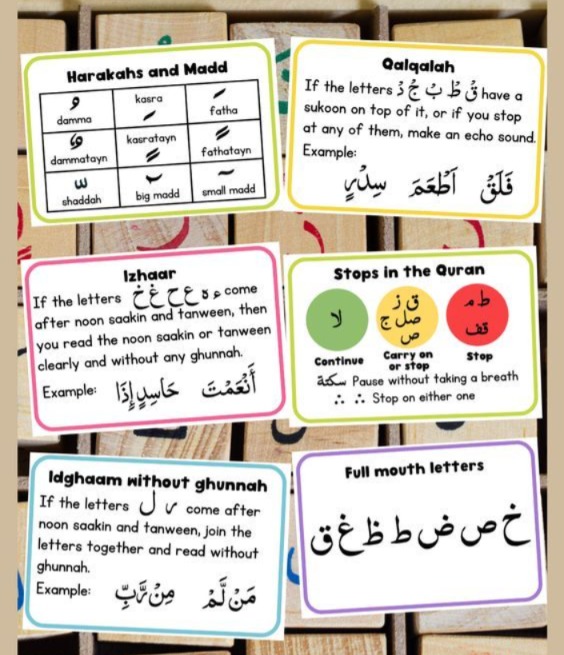
To recite Quran in Arabic is to connect directly with the words of Allah in their purest form — the same sounds revealed to Prophet Muhammad ﷺ more than fourteen centuries ago. When you recite in Arabic, you experience the Quran as it was meant to be heard: powerful, rhythmic, and filled with divine light. Beyond the beauty of its sound, Arabic recitation carries immense spiritual, emotional, and mental benefits — from deepening your faith and focus to bringing peace and blessings into your daily life.
Whether you’re just starting your journey or hoping to improve your Tajweed, this guide will help you understand why reciting the Quran in Arabic matters, the life-changing rewards it brings, and how you can begin learning step by step — all from the comfort of your home.
Why It Matters to Recite the Quran in Arabic?

Reciting the Quran in Arabic holds a special place in the heart of every Muslim. It’s not just about reading words — it’s about connecting directly with the divine message in the very language Allah revealed. When you recite the Quran in Arabic, your soul feels the original sound, rhythm, and emotion of Allah’s words — something no translation can ever fully capture.
Through Arabic recitation, Muslims across the world share a single, unchanged text that unites them in worship and understanding. Each verse, each letter, carries not only meaning but spiritual power and reward. Even for those who do not fully understand Arabic yet, reciting in its original language brings peace to the heart, light to the soul, and countless blessings from Allah.
Learning to recite Quran in Arabic helps preserve its authenticity, strengthens faith, and deepens the connection between the believer and the Creator.
The Quran’s divine language and its unique miracle
Reciting the Quran in Arabic connects you directly to the very words revealed to Prophet Muhammad ﷺ — words that carry a divine power and beauty unmatched by any human speech.
The Arabic of the Quran is itself a miracle: its rhythm, eloquence, and depth cannot be replicated. When recited in its original form, the heart feels as though it is hearing Allah’s words as they were revealed — pure, perfect, and timeless
The reward of reciting in Arabic as taught by the Prophet ﷺ
Every letter recited from the Quran in Arabic brings immense reward. The Prophet ﷺ said:
«من قرأ حرفًا من كتاب الله فله به حسنة، والحسنة بعشر أمثالها، لا أقول: (ألم) حرف، ولكن ألف حرف، ولام حرف، وميم حرف»
— “Whoever recites a letter from the Book of Allah will have one good deed, and each good deed will be multiplied by ten.” Jamiʿ at-Tirmidhi, Hadith 2910 (Hasan Sahih)
Even if one struggles to pronounce the letters correctly, Allah grants double reward — one for reciting and another for striving. Every sound of the Arabic Quran counts as worship, drawing the believer closer to Allah and filling the heart with peace.
Why Translations Can Never Replace When you Recite Quran in Arabic
While translations can help us understand meanings, they can never capture the divine essence of the Quranic words. The Arabic Quran is not merely a message — it is the revelation itself.
Translations may explain, but only Arabic preserves the miracle, sound, and spirit of the Quran. Reciting in Arabic allows Muslims everywhere to stay connected to the original revelation, free from alteration or loss in meaning.
The Spiritual Benefits of Reciting Quran in Arabic

Reciting the Quran in its original Arabic language carries deep spiritual rewards that go beyond words. Each letter you recite is an act of worship, and every sound connects you directly to the divine message that Allah revealed to the Prophet Muhammad ﷺ. The beauty and rhythm of the Arabic verses touch the heart in a way no translation can fully capture. When you recite the Quran in Arabic, you experience the sacred text in its purest form — exactly as Allah revealed it.
When a believer recites the Quran in Arabic, they engage both heart and tongue in remembrance of Allah. It strengthens faith, brings serenity to the soul, and purifies the heart from anxiety and distractions. Allah says in the Quran:
ٱلَّذِينَ ءَامَنُوا۟ وَتَطْمَئِنُّ قُلُوبُهُم بِذِكْرِ ٱللَّهِ ۗ أَلَا بِذِكْرِ ٱللَّهِ تَطْمَئِنُّ ٱلْقُلُوبُ ٢٨
“those who believe and whose hearts find comfort in the remembrance of Allah. Surely in the remembrance of Allah do hearts find comfort.
” (Ar-Ra’d 13:28).
1. Preserving the Original Message and Tradition When You Recite Quran in Arabic
Reciting the Quran in Arabic preserves the divine words exactly as they were revealed to Prophet Muhammad ﷺ, without alteration or loss in meaning. The Quran has remained unchanged for more than fourteen centuries—its words, sounds, and rhythm preserved by Allah’s protection.
When Muslims recite it in its original language, they connect directly with the same message heard by the early companions and generations of scholars throughout Islamic history. This act strengthens the link to authentic Islamic tradition and helps Muslims pass down the Quran in its purest form.
2. Deepening Your Spiritual Connection as You Recite Quran in Arabic
Reciting in Arabic allows a believer to experience the Quran’s divine presence on a deeper level. Each verse touches the heart differently when heard or spoken in the language of revelation.
Even if one does not understand every word, the sound of the Arabic recitation softens the heart and brings the soul closer to Allah. It is a form of worship that renews faith and fills one’s heart with serenity and light.
The Prophet ﷺ said:
«الذي يقرأ القرآن وهو ماهر به مع السفرة الكرام البررة، والذي يقرأ القرآن ويتتعتع فيه، وهو عليه شاق له أجران»
“The one who is proficient in reciting the Qur’an will be with the noble, righteous scribes, and the one who recites it and stammers in it, finding it difficult, will have two rewards.” (Bukhari)
3. Understanding the True Message of the Quran
The Quran was revealed in Arabic, and its beauty, depth, and precision are inseparable from the language itself. While translations help in understanding general meanings, they cannot convey the full depth, eloquence, or beauty of the Quranic language. By learning to recite and understand Arabic, Muslims experience the Quran as it was meant to be read. They grasp the power of its expressions and feel the richness of its message directly.
4. Attaining Greater Rewards from Allah When You Recite Quran in Arabic
Reciting the Quran in Arabic is an act of worship that brings immense spiritual reward. Every sound uttered from the tongue is counted as a good deed, and even those who struggle to pronounce the words correctly are rewarded for their effort and sincerity.
The Prophet ﷺ encouraged believers to recite regularly, reminding us that those who recite beautifully are among the noble angels, while those who find it difficult receive a double reward for their perseverance.
By engaging with the Quran in its original language, you not only gain reward for each letter but also strengthen your spiritual bond with Allah through continuous remembrance and devotion.
5. Improving Arabic Language Skills
Regular recitation improves pronunciation, vocabulary, and fluency in Arabic. Since the Quran represents the highest level of Arabic eloquence, it serves as a living source for learning the language.
Through continuous recitation and reflection, Muslims naturally strengthen their command of Arabic, allowing them to understand the meanings of prayers, dhikr, and Islamic texts more deeply.
6. Increased Mental Stimulation
Reciting the Quran in Arabic activates both the mind and the tongue, improving concentration, memory, and cognitive focus.
Studies have shown that engaging in recitation and memorization enhances mental clarity and reduces stress. The rhythm and repetition of Quranic verses help calm the nervous system, promote relaxation, and enhance mindfulness — turning the act of recitation into both a spiritual and mental exercise.
7. Encouraging Muslim Unity and Personal Growth
The Arabic Quran unites Muslims around the world under one divine text — the same verses recited in every corner of the globe. This shared connection strengthens the sense of brotherhood and reminds believers that Islam transcends language, race, and culture. When Muslims recite Quran in Arabic, they join a global act of worship that links hearts beyond borders and generations.
By striving to recite Quran in Arabic and understand its meanings, believers grow both spiritually and personally. This journey nurtures humility, patience, and consistency in their worship — qualities that build stronger faith and a deeper connection to Allah.
8. Developing Islamic Cultural Appreciation by Learning to Recite Quran in Arabic
Reciting the Quran in Arabic helps Muslims appreciate the depth of Islamic culture — its calligraphy, recitation styles, and linguistic beauty.
It connects the believer to centuries of scholars, reciters, and students who devoted their lives to preserving the Quranic heritage.
Through Arabic recitation, one becomes part of this timeless legacy, understanding how the Quran continues to shape Islamic identity and civilization.
9. You Can Recite Quran in Arabic or Read the Translation — Both Bring You Closer to Allah
While reciting in Arabic brings special rewards and spiritual elevation, Islam encourages everyone to engage with the Quran in the way they can.
Those who cannot yet read Arabic can begin with translations to understand meanings, and gradually learn to recite in Arabic with time. The intention and effort are both beloved to Allah.
The best approach is to combine both — reading in Arabic for reward and barakah, and studying translation for comprehension and reflection.
Challenges Learners Face When Reading Quran in Arabic

Difficulty with pronunciation and letters
Challenge:
For many learners, especially non-native Arabic speakers, pronouncing the Arabic letters correctly can be difficult. The Quran contains unique sounds such as ‘ayn (ع) and qaf (ق) that don’t exist in many other languages, and mastering them takes time and patience.
Solution:
Struggling with pronunciation is part of the learning journey, not a setback. Every attempt to pronounce correctly brings you closer to mastering the beauty of the Quran’s sound. Regular practice with a qualified teacher, listening carefully to native reciters, and repeating verses slowly can gradually improve articulation.
Remember, Allah rewards sincere effort — so even if reciting feels difficult at first, each attempt is counted and valued. With patience and consistency, those challenging letters will soon become familiar and natural on your tongue.
Struggles in understanding Tajweed rules
Challenge:
Tajweed — the set of rules governing the correct pronunciation and recitation of the Quran — can be overwhelming at first. Learners may struggle to apply rules like elongation (madd), nasalization (ghunnah), or stopping (waqf) properly. However, mastering these rules is essential for those who wish to recite Quran in Arabic as it was revealed — with precision, beauty, and reverence.
By learning Tajweed gradually and practicing regularly, students not only improve their fluency but also experience the spiritual depth that comes when they recite Quran in Arabic with proper pronunciation and heartfelt reflection.
Solution:
Understanding Tajweed is not just about technical accuracy; it’s about showing respect to Allah’s words. As Allah says:
أَوْ زِدْ عَلَيْهِ وَرَتِّلِ ٱلْقُرْءَانَ تَرْتِيلًا ٤
“And recite the Quran with measured recitation.” — Surah Al-Muzzammil (73:4)
This verse highlights the importance of reading slowly, carefully, and with reflection. Joining a Tajweed Course with a qualified instructor allows students to learn step by step, listening, repeating, and applying each rule correctly. With consistent effort, Tajweed becomes natural and enhances the beauty and spirituality of recitation.
Losing motivation without guidance
Challenge:
Many learners start enthusiastically but lose motivation over time — especially when they feel their progress is slow or when learning alone without support. This can lead to frustration or neglecting regular practice.
Solution:
Motivation grows when one remembers the immense reward promised for reciting the Quran. The Prophet Muhammad ﷺ said:
“The best among you are those who learn the Quran and teach it.” (Bukhari)
This hadith inspires perseverance and reminds us that every small step brings reward. Setting realistic goals, joining online Quran groups, or studying with a teacher provides encouragement and accountability. Even five minutes of daily recitation is valuable — consistency matters more than speed.
How to Start Reciting the Quran in Arabic Step-by-Step
1. Learn Arabic letters and pronunciation (Makharij)

The foundation of Quranic recitation begins with learning the Arabic alphabet and understanding how each letter is pronounced from its correct makhraj (place of articulation). Arabic has sounds that don’t exist in many other languages, such as ‘ayn (ع) and ḍād (ض), so mastering their pronunciation is key to reading correctly and being able to recite Quran in Arabic as it was revealed.
Learning these letters with care lays the groundwork for every Muslim who wishes to recite Quran in Arabic fluently, beautifully, and with the reverence the Quran deserves.
2. Understand basic Tajweed rules
Once you’ve learned the letters and their sounds, the next step is to apply Tajweed — the science of reciting the Quran with precision and beauty.
Tajweed ensures that each letter is given its right and that the recitation reflects the rhythm and melody that the Quran deserves.
Start with simple rules like:
- Madd (elongation) – when to stretch certain vowels.
- Qalqalah – the echoing sound in letters such as ق، ط، ب، ج، د.
- Ghunnah – the nasal sound in letters with “ن” or “م”.
Taking Tajweed lessons online or with a qualified teacher will make your recitation more accurate and spiritually moving.
3. Practice daily with short Surahs
Consistency is the secret to fluency. Begin with short surahs from Juz ‘Amma, such as Al-Fatihah, Al-Ikhlas, Al-Falaq, and An-Nas.
Read them slowly, focusing on correct pronunciation rather than speed. Repetition builds confidence and helps you memorize naturally over time.
Even dedicating 10–15 minutes daily can bring noticeable improvement. The Prophet ﷺ said:
وَأَنَّ أَحَبَّ الأَعْمَالِ أَدْوَمُهَا إِلَى اللَّهِ، وَإِنْ قَلَّ ”
“The most beloved deeds to Allah are those done regularly, even if they are small.” (Bukhari)
Set a daily goal — a few verses, a single page, or one surah — and stay consistent.
4. Listen and repeat after skilled reciters
Listening to expert reciters helps you internalize correct pronunciation, intonation, and flow. Repeat verses after them, mimicking their rhythm and pauses. This method — known as talaqqi (learning by listening) — has been used for centuries to preserve accurate recitation and help learners recite Quran in Arabic with confidence and beauty.
Listening not only improves pronunciation but also brings spiritual tranquility — as Allah says:
وَإِذَا قُرِئَ ٱلْقُرْءَانُ فَٱسْتَمِعُوا۟ لَهُۥ وَأَنصِتُوا۟ لَعَلَّكُمْ تُرْحَمُونَ ٢٠٤
“When the Quran is recited, listen to it and be silent that you may receive mercy.” — Surah Al-A‘raf (7:204)
Why Choose Areeb Academy to Learn Quran Recitation in Arabic
Certified Arab tutors specializing in pronunciation and Tajweed
At Areeb Academy, every instructor is a certified Arab tutor with deep knowledge of Tajweed and Quranic recitation. You’ll learn directly from native speakers who understand the subtle sounds, rhythm, and flow of Quranic Arabic. This ensures that you not only read the Quran correctly but also with the beauty and precision it deserves.
Step-by-step curriculum from beginner to fluent reciter
Our structured curriculum is designed to take you from the basics of Arabic letters to fluent Quranic recitation. Each level builds on the previous one, helping you gradually master pronunciation, Tajweed rules, and confidence in reciting long Surahs. Whether you’re starting fresh or revisiting your recitation skills, Areeb Academy will guide you every step of the way.
One-on-one guidance for kids and adults
We understand that every learner is unique. That’s why we offer personalized one-on-one sessions tailored to your pace and learning style. Kids, adults, and even seniors benefit from patient teachers who make learning engaging and motivating. You’ll receive direct feedback, correction, and encouragement in every class.
Flexible timings and trial classes available
With busy schedules in mind, Areeb Academy offers flexible class timings — mornings, evenings, or weekends. You can choose what works best for you. Plus, you can book a free trial class to experience our teaching method firsthand before committing.
Real-Life Stories from Our Students

At Areeb Academy, every student’s journey is unique — filled with effort, patience, and beautiful moments of connection with the Quran.
Fatima Ahmed, a busy mother from the UK, joined our beginner course hoping to finally read the Quran in Arabic on her own. Within just three months, she was confidently reciting short Surahs to her children — something she once thought was impossible.
Omar Khalid, a university student from US, Texas, says learning with a native Arab tutor changed everything for him. “I used to struggle with pronunciation, but my teacher guided me patiently. Now, I lead recitation in our student Islamic circle,” he shared proudly.
And for Aisha Noor, who joined from Malaysia, her lessons became more than just classes. “Each session felt like a spiritual retreat,” she said. “I could feel my heart softening with every verse I learned to pronounce correctly.”
These real-life stories reflect what makes Areeb Academy special — compassionate teachers, a supportive environment, and a shared love for the words of Allah. You can also read more reviews from our students on Trustpilot to see their experiences firsthand.
Final Thoughts
Reciting the Quran in Arabic is more than just reading words — it is a spiritual journey that brings the believer closer to Allah, strengthens faith, and fills the heart with peace. Moreover, consistent practice not only improves pronunciation and understanding but also connects you to a timeless tradition shared by millions of Muslims worldwide. Therefore, whether you are a beginner or looking to perfect your recitation, every effort counts and brings immense reward.
Take the first step today — join Areeb Academy and experience one-on-one guidance from certified Arab tutors who specialize in Tajweed, Quranic recitation And Arabic Fusha. Best of all, you can start with a FREE Trial Session to explore our teaching method and see the benefits firsthand. Don’t wait — your journey to reciting the Quran in Arabic beautifully begins now.
FAQs
Q1: Can I learn to recite the Quran in Arabic even if I don’t speak Arabic?
A: Absolutely! Our courses are designed for beginners, and our certified Arab tutors guide you step-by-step in pronunciation, Tajweed, and recitation.
Q2: How long does it take to start reciting confidently?
A: Progress varies, but with regular practice and guidance, most beginners see noticeable improvement within a few weeks.
Q3: Are the classes suitable for children and adults?
A: Yes! Areeb Academy offers personalized one-on-one sessions for all ages, ensuring every learner progresses at their own pace.
Q4: Do I need any special materials to start?
A: No special materials are needed. We provide digital resources like Noorani Qaida, practice exercises, and recommended apps for listening and repeating Quranic verses.
Q5: How can I book the FREE Trial Session?
A: Simply click here to schedule your trial. Experience firsthand how our expert tutors help you recite the Quran in Arabic beautifully and confidently.


